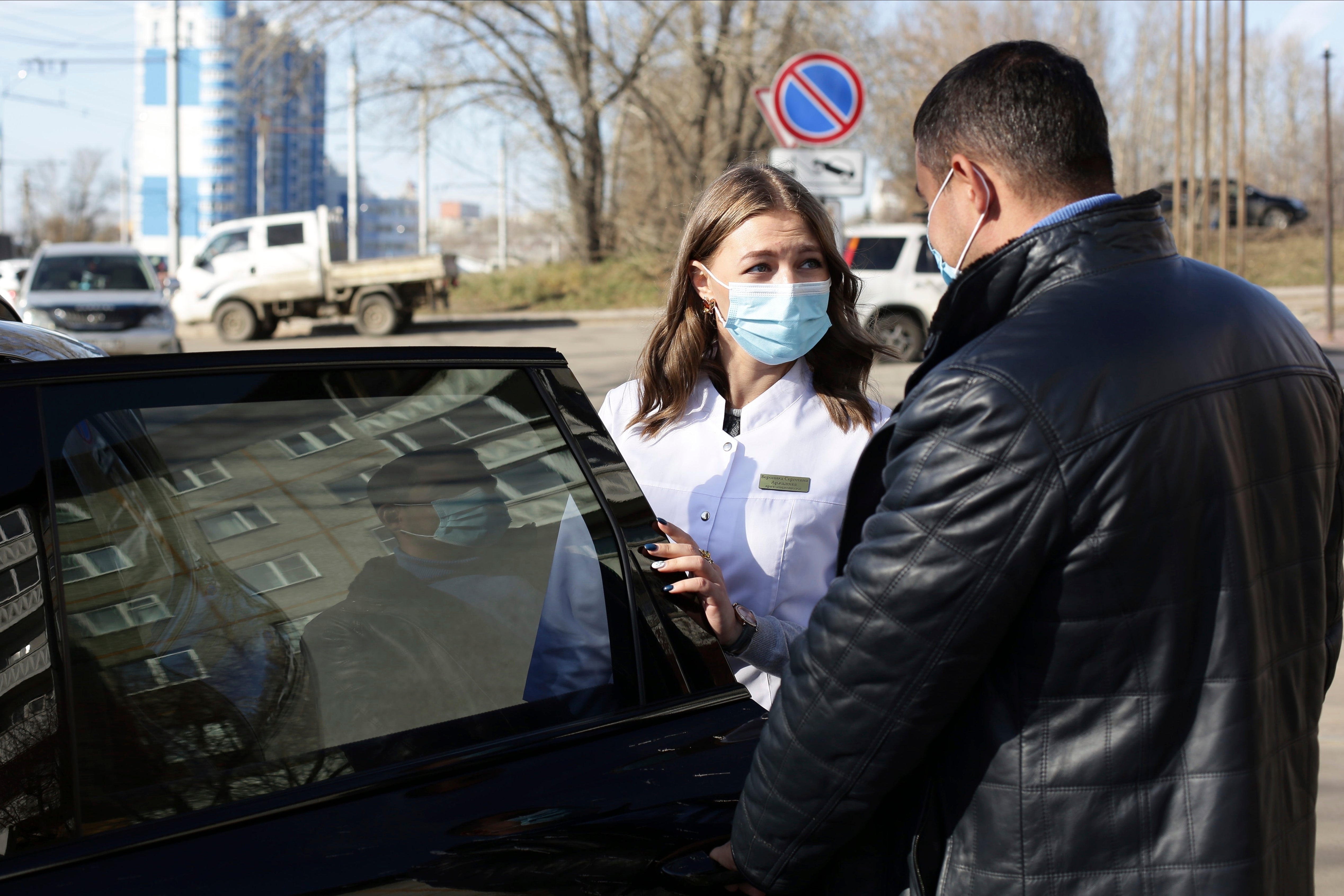Siberians fight the pandemic by giving weary doctors a lift
Record-breaking numbers of coronavirus infections are straining Russia's health care system to its limits and doctors across the country have been inundated with demands for house calls for infectious people isolating at home

Your support helps us to tell the story
This election is still a dead heat, according to most polls. In a fight with such wafer-thin margins, we need reporters on the ground talking to the people Trump and Harris are courting. Your support allows us to keep sending journalists to the story.
The Independent is trusted by 27 million Americans from across the entire political spectrum every month. Unlike many other quality news outlets, we choose not to lock you out of our reporting and analysis with paywalls. But quality journalism must still be paid for.
Help us keep bring these critical stories to light. Your support makes all the difference.
As coronavirus resurged across Russia this fall, one of the most common complaints from people with symptoms who were self-isolating at home was that they had to wait hours or sometimes days before a visiting doctor would arrive to check on them.
Record-breaking numbers of confirmed infections have strained the country's health care system to its limits and left doctors all across Russia inundated with demands for house calls for virus patients.
“We have already started to choke, with our doctors making 20-25 house calls a day,” Vera Klyuyeva, head of internal medicine at an outpatient clinic in the Siberian city of Irkutsk, told The Associated Press in October. “They were just falling off their feet.”
In late September, the Irkutsk region was reporting around 80 new coronavirus cases a day. By December, the number had more than tripled to over 270 daily new infections.
Overall, Russia has reported over 2.5 million coronavirus cases — the fourth-largest caseload in the world — and over 44,000 deaths.
Physicians in outpatient facilities have to tend to those who were self-isolating at home with mild or moderate symptoms and needed to take a test or get treatment recommendations. Often, the Russian medical workers have had to go on foot, as their clinics don't have enough cars to go around.
In Irkutsk, that changed in October, when a group of volunteers came to the rescue, offering the simple service of driving medical workers to their home visits.
Vadim Kostenko, 37-year-old local entrepreneur, came up with the idea after speaking to medical workers about what could help best. He said doctors were able to visit 70% more patients when they had someone to drive them than when they went on foot.
“People need to get united to resolve ... the problem with coronavirus,” Kostenko told the AP
He turned to Facebook to urge both residents and state-owned companies to join him.
“I decided to send a car with a driver ... Today, for some of the doctors at Irkutsk City Hospital No. 1, work will be a little easier,” he wrote.
Within about two weeks, there were 22 cars and over 100 volunteers in Irkutsk helping local doctors with house calls. By December, the project called Let's Help Doctors Together had grown to involve more than 3,000 volunteers in 10 Russian regions.
In Irkutsk alone, more than 500 volunteers have helped with 10,000 house calls since October, Kostenko said.
Volunteers figure out their schedules with local hospitals and health officials. Some dedicate a full day to driving, some come out for several hours and those who want to help but can't do so donate money for gas.
Both volunteers and the doctors they drive take all the necessary precautions in order not to infect each other, since the patients they are visiting are infectious. Doctors come in full protective gear and spray their protective suits with disinfectants after every visit before getting back into the cars. Volunteers wear masks and other protective equipment, too.
The help was very much needed, especially as infections surged so rapidly, said Tatyana Ilyushina, deputy head doctor of the children’s Polyclinic No. 1 in Irkutsk.
“We have separate teams of doctors (treating non-coronavirus patients) and separate teams of doctors serving patients with coronavirus infection, so, of course we need help, including transport,” she said.
And the drivers themselves are happy to be so useful.
“Doctors are grateful, of course, and happy to get help. They do need it, because they have been working at such a pace for a long time already,” volunteer driver Vitaly Tsvetkov told the AP.
___
“One Good Thing” is a series that highlights individuals whose actions provide glimmers of joy in hard times — stories of people who find a way to make a difference, no matter how small. Read the collection of stories at https://apnews.com/hub/one-good-thing
Subscribe to Independent Premium to bookmark this article
Want to bookmark your favourite articles and stories to read or reference later? Start your Independent Premium subscription today.